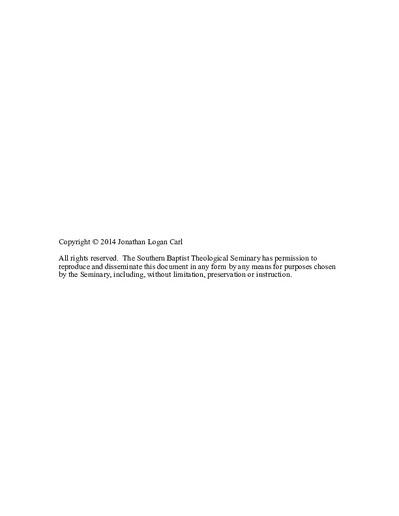An Analysis and Critique of Neil T. Anderson's Approach to Spiritual Warfare in Evangelism and Discipleship
Abstract
This dissertation analyzes and critiques Neil T. Anderson's approach to spiritual warfare, specifically in the context of evangelism and discipleship. It argues that while Anderson's understanding of spiritual warfare in evangelism and discipleship is generally orthodox, his approach to spiritual warfare in evangelism is invalid and his approach to spiritual warfare in discipleship demonstrates significant points of theological and practical concern. It also shows the lasting value of Anderson's works but also establishes needed correctives for future works on spiritual warfare in evangelism and discipleship.
Chapter 1 introduces spiritual warfare and some of the major biblical, historical, and theological issues that are important in Anderson's approach to spiritual warfare. This chapter communicates the dissertation's thesis, modern day implications, analytical approach, and important connections in evangelism and discipleship.
Chapter 2 focuses on describing the life, teachings, writings, and ministry of Anderson. The impact of both the writings and ministry are considered over the past two decades and a summary understanding of his spiritual warfare views are given.
Chapter 3 lays an essential, yet focused, basis for understanding spiritual warfare. Relevant biblical passages, early church history practices, and theological categories are presented and examined in order to establish a reference point for analyzing Anderson's ministry approach to spiritual warfare.
Chapter 4 explores some of the main criticisms of Anderson's writings, specifically considering David Powlison's

